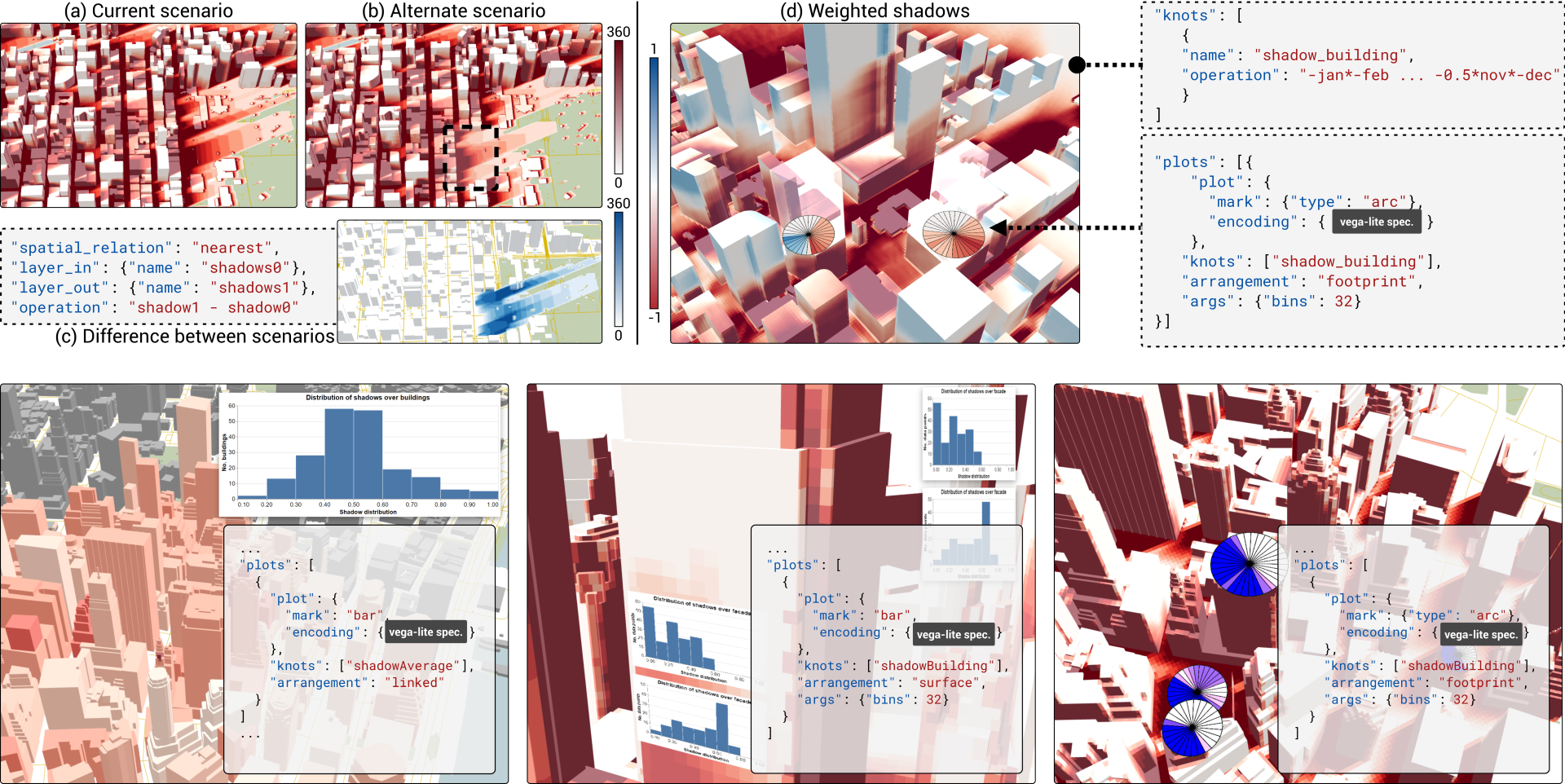The Urban Toolkit: A Grammar-based Framework for Urban Visual Analytics
Gustavo Moreira, Maryam Hosseini, Md Nafiul Alam Nipu, Marcos Lage, Nivan Ferreira, Fabio Miranda
DOI: 10.1109/TVCG.2023.3326598
Room: 105
2023-10-26T23:00:00ZGMT-0600Change your timezone on the schedule page
2023-10-26T23:00:00Z

Fast forward
Full Video
Keywords
Urban visual analytics, Urban analytics, Urban data, Visualization toolkit
Abstract
While cities around the world are looking for smart ways to use new advances in data collection, management, and analysis to address their problems, the complex nature of urban issues and the overwhelming amount of available data have posed significant challenges in translating these efforts into actionable insights. In the past few years, urban visual analytics tools have significantly helped tackle these challenges. When analyzing a feature of interest, an urban expert must transform, integrate, and visualize different thematic (e.g., sunlight access, demographic) and physical (e.g., buildings, street networks) data layers, oftentimes across multiple spatial and temporal scales. However, integrating and analyzing these layers require expertise in different fields, increasing development time and effort. This makes the entire visual data exploration and system implementation difficult for programmers and also sets a high entry barrier for urban experts outside of computer science. With this in mind, in this paper, we present the Urban Toolkit (UTK), a flexible and extensible visualization framework that enables the easy authoring of web-based visualizations through a new high-level grammar specifically built with common urban use cases in mind. In order to facilitate the integration and visualization of different urban data, we also propose the concept of knots to merge thematic and physical urban layers. We evaluate our approach through use cases and a series of interviews with experts and practitioners from different domains, including urban accessibility, urban planning, architecture, and climate science. UTK is available at urbantk.org.